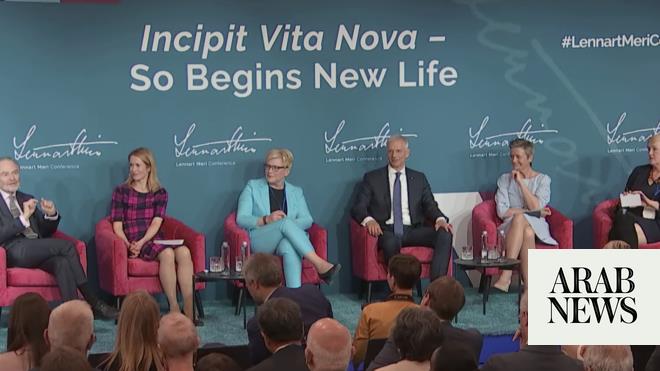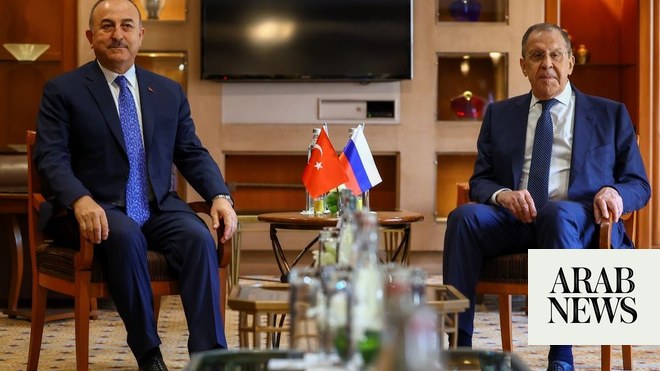
DAVOS: The war in Ukraine is likely to continue impacting the economies of Europe and the wider world for years to come, former Finnish Prime Minister Alexander Stubb said during a panel at the World Economic Forum on Monday.
Stubb said the global economy would feel the pinch as a result of the Russian invasion of Ukraine, especially in terms of inflation, energy prices and food security.
While Vladimir Putin remains in power in Russia, Stubb said he could not see the return of an equilibrium between Moscow and Europe and that it would be hard for either the Russians or the Ukrainians to define a victory in the conflict.
“Zelensky can’t give up, and it’s much easier to defend your country and your identity than to attack,” he said. “The Russian military is surprisingly weak, and it’s difficult for Putin to define a victory,” he added.
“I think it has to be a territorial definition; for Putin, it’s only Donetsk, perhaps a little bit more, including Crimea.
“Whereas for Zelensky, he could never approve that. I don’t have an answer for when this is going to end.”
Stubb also said he believes that the driving force behind the war is Putin’s desire to make himself a great leader in Russian history.
Stubb’s co-panelist Karin von Hippel, director-general of the Royal United Services Institute, said more definition was needed between Putin and the Russian people, calling the Ukraine invasion “Putin’s war.”
She continued: “It’s hard to say if he knows the truth about what’s really going on in Ukraine; we don’t know how far he’s willing to go.”
She said that under Russia’s leadership, Putin would not abandon the ideology that Ukraine should form part of Russia.
“No Western country can shake hands with him after this. Some may, but a large part can’t,” she added.
Von Hippel said that while she believed in global governance and was a supporter of the UN project, she felt “deeply disappointed” by its response to the Ukraine conflict, saying it had “failed” in its duty.
Samir Saran, president of the Observer Research Foundation, said he believed the developing world — in Asia, Africa and Latin America — should not be paying for what he called a war of European making.
“When will the world start blaming the West for this inflation?” he asked, before concluding the moment would come sooner than European leaders think.
Saran also said that if a reported disconnect between Putin and the Russian people were to disappear and they were to fully support the conflict, the consequences would be felt by the global economy for at least another decade.












